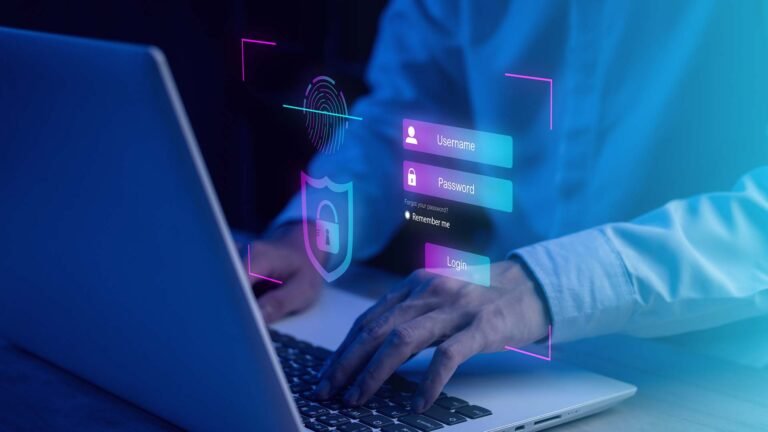In a world where digital threats continue to rise, safeguarding your business from cyberattacks has become a critical necessity. Whether you operate a small startup or manage a larger enterprise, cybersecurity is an issue that no organization can afford to ignore. The complexities of modern-day cyber threats demand a proactive approach to protection. The good news? Effective strategies can help you stay one step ahead of potential attackers.
Many businesses rely on managed IT services in Pittsburgh to help bolster their defenses. With professionals handling the technical side, companies can focus on their core operations while keeping their digital infrastructure secure.
Understanding the Threat Landscape
The first step in protecting your business is understanding the types of cyber threats you’re facing. Cybercriminals employ a variety of methods, from phishing schemes and malware attacks to more advanced tactics such as ransomware. Each type of threat poses a different level of risk, and having a clear grasp of these risks will allow you to prepare more effectively.
One of the most common methods of attack is phishing, where cybercriminals attempt to trick individuals into revealing sensitive information like login credentials. These attacks often appear as legitimate emails, making it difficult for employees to discern what’s real and what’s not. Training your staff to recognize these tactics can reduce the likelihood of successful phishing attacks.
Another significant threat is ransomware, which locks a business’s files until a ransom is paid. This can bring operations to a halt and result in substantial financial loss. Implementing data backups and securing access points are key to minimizing the damage from such incidents.
Strengthening Your Defense
Once you understand the various types of threats, the next step is to put strong defenses in place. One fundamental step is installing firewalls and antivirus software across all company devices. Many businesses, especially in areas like Maryland, rely on the Baltimore managed IT services team to ensure these tools are properly configured and maintained, providing a solid first line of defense against unauthorized access and malicious software.
Strengthening Your Defense
Once you understand the various types of threats, the next step is to put strong defenses in place. One fundamental step is installing firewalls and antivirus software across all company devices. These tools serve as your first line of defense, blocking unauthorized access and detecting malicious software before it can cause harm.
But software alone isn’t enough. Ensuring that your systems are regularly updated with the latest security patches is critical. Many attacks exploit vulnerabilities in outdated software, so setting up automatic updates can close these gaps before they’re used against you.
For added protection, consider implementing multi-factor authentication (MFA). MFA requires users to verify their identity using at least two different methods—usually something they know (like a password) and something they have (like a phone). This added layer of security makes it much more difficult for hackers to gain access to your network.
Educating Employees
While technical solutions are essential, human error remains one of the biggest vulnerabilities in any cybersecurity plan. Employees often unintentionally open the door for cybercriminals by clicking on malicious links, downloading infected attachments, or using weak passwords. Therefore, ongoing education is crucial.
Conduct regular training sessions to teach staff how to spot suspicious emails, handle sensitive data securely, and follow best practices when working remotely. Establish a clear protocol for reporting potential threats so that your team can react quickly to any suspicious activity.
Password management is another critical area. Encourage employees to use strong, unique passwords for different accounts, and consider using password management tools to store them securely. Requiring regular password changes can further reduce the risk of unauthorized access.
Securing Your Network
With more employees working remotely, network security is a growing concern. Remote work introduces additional vulnerabilities, as home networks are often less secure than corporate networks. To address this, consider using virtual private networks (VPNs) to encrypt your employees’ internet connections when accessing company data from outside the office.
Additionally, segmenting your network can limit the damage of a potential breach. By dividing your network into smaller, isolated sections, you can prevent a cyberattack from spreading to the entire system. This strategy is particularly useful in containing malware and ransomware attacks.
Data Protection and Backup
Protecting your company’s data should be one of your top priorities. Data breaches can result in the loss of sensitive customer information, damage your reputation, and incur hefty legal fines. Encrypting data both in transit and at rest is an effective way to protect it from unauthorized access.
Backing up your data regularly is equally important. A robust backup system ensures that even if your files are compromised or lost, you can restore them quickly and minimize downtime. It’s best to store backups in multiple locations—both onsite and offsite—for added redundancy.
Monitoring and Response
Even the most secure systems can be compromised, which is why monitoring your network for unusual activity is critical. Implement tools that track network traffic and send alerts when something seems out of the ordinary. This allows you to respond quickly to potential threats before they escalate into full-blown attacks.
Have a response plan in place for when breaches do occur. This plan should outline the steps your team needs to take in the event of a cyberattack, including isolating affected systems, notifying stakeholders, and initiating recovery efforts. A well-prepared response can make all the difference in minimizing the impact of an attack.
The Role of Managed IT Services
For many small and medium-sized businesses, maintaining an in-house IT security team can be both costly and impractical. This is where managed IT services become invaluable. Providers of these services offer expert security management, monitoring, and support tailored to the needs of your business.
Companies using managed IT services in Pittsburgh, for example, benefit from around-the-clock monitoring and quick responses to potential threats. By outsourcing their cybersecurity needs, businesses can tap into the expertise of professionals who stay up to date on the latest security trends and solutions. This level of vigilance helps to safeguard your business from evolving threats while allowing you to focus on growth and operations.
Staying Proactive
Cyber threats are constantly evolving, and your cybersecurity strategy must evolve with them. Regularly reviewing and updating your security protocols ensures that your defenses remain strong against new types of attacks. Conduct routine audits to identify potential vulnerabilities and fix them before they can be exploited.
It’s also helpful to stay informed about emerging threats and best practices by attending webinars, reading industry reports, or consulting with cybersecurity experts. The more proactive you are in keeping up with changes in the threat landscape, the better equipped your business will be to handle whatever comes its way.
Conclusion
Protecting your business from cyber threats is no small task, but it’s one that you can manage with the right approach. By understanding the risks, strengthening your defenses, educating your employees, and utilizing managed IT services, you can significantly reduce the chances of a successful attack. Remember, cybersecurity is an ongoing effort—staying vigilant and proactive will serve you well in safeguarding your business in the long term.
Passionate content writer and savvy blog publisher, Aamir crafts compelling stories and insightful articles that captivate and inform. With a knack for blending creativity and strategy, they bring fresh perspectives to every piece. Dive into their world of words and discover content that resonates.





